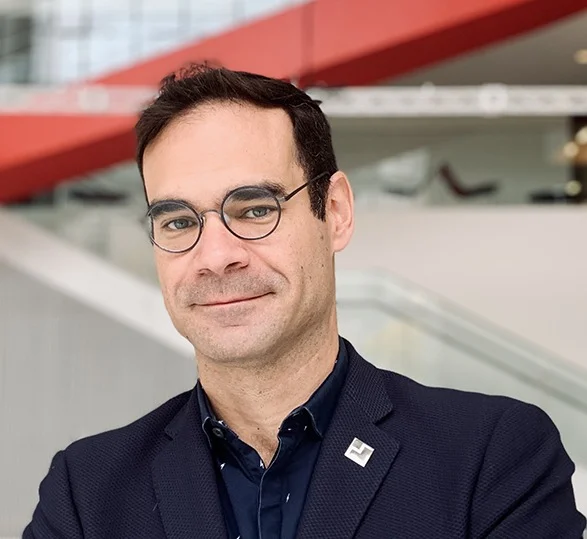
Lecture, debate and workshops with Prof. Luis Alonso
The Institute of Sociology at the University of Wrocław is pleased to invite you to a lecture, roundtable discussion, and workshops with Professor Luis Alonso, who will visit the University from 21 to 24 May.
Luis Alonso is a researcher at the City Science Group and the project lead of the Andorra Living Lab at the MIT Media Lab. Holding a PhD in architecture, he coordinates urban innovation initiatives within the City Science Network, integrating energy modelling, urban simulation, mobility, innovation districts, and smart housing to develop human-scale ecosystems.
His interdisciplinary approach aligns with the Media Lab’s philosophy, combining urban indicators, artificial intelligence, synthetic data, humanised agent-based modelling, architectural robotics, sustainability, and IoT. Beyond academia, he has led urban simulation and design projects for NEOM (The Line), L3, and other companies, and has consulted for PwC, BCG, Deloitte, and Hyundai. He has authored over 60 scientific publications and holds numerous patents, including the award-winning F²TE³ façade system.
His work has earned international recognition, including the MIT TR35 Spain Award, the Golden A’ Design Award, and a prize for outstanding doctoral research.
During his visit to the University of Wrocław, Prof. Alonso will deliver a lecture titled: “Redefining Urban Life: Data, Technology, and the Future of Cities”.
“At the City Science Group at MIT Media Lab, we combine rapid innovation, technology, and human imagination to develop cities through an interdisciplinary lens. By breaking down traditional disciplinary boundaries, we reimagine possibilities and shape the future of cities in unconventional ways.”
The presentation will showcase the Group’s research, drawing insights from the City Science Network of Collaborative Cities. Using real-world applications from Andorra, Hamburg, Guadalajara (Mexico), and BioBio, the lecture will explore how data-driven urban innovation supports sustainable, human-centred transformation. These case studies highlight how we can rethink:
- Mobility – by creating smarter, more efficient transport systems
- Housing – by designing adaptive, sustainable living spaces
- Resilience – by building cities better prepared for future challenges
By harnessing data, technology, and interdisciplinary collaboration, we can expand the boundaries of imagination and drive meaningful urban innovation that improves how we live, work, and interact with our environments.
The debate and workshops will focus on:
– Engaging students and professionals from UWr and beyond in discussions on antidisciplinary approaches, social research, and the future of cities
– Introducing the UWr academic network to large-scale, globally significant projects and demonstrating the practical use of data in social and urban research
– Inspiring students to seek interdisciplinary collaboration, mentorship beyond academia, and real-world applications for their theoretical knowledge
Dates and locations of the events will be announced shortly.
Date of publication: 23.04.2025
Added by: S.F.



